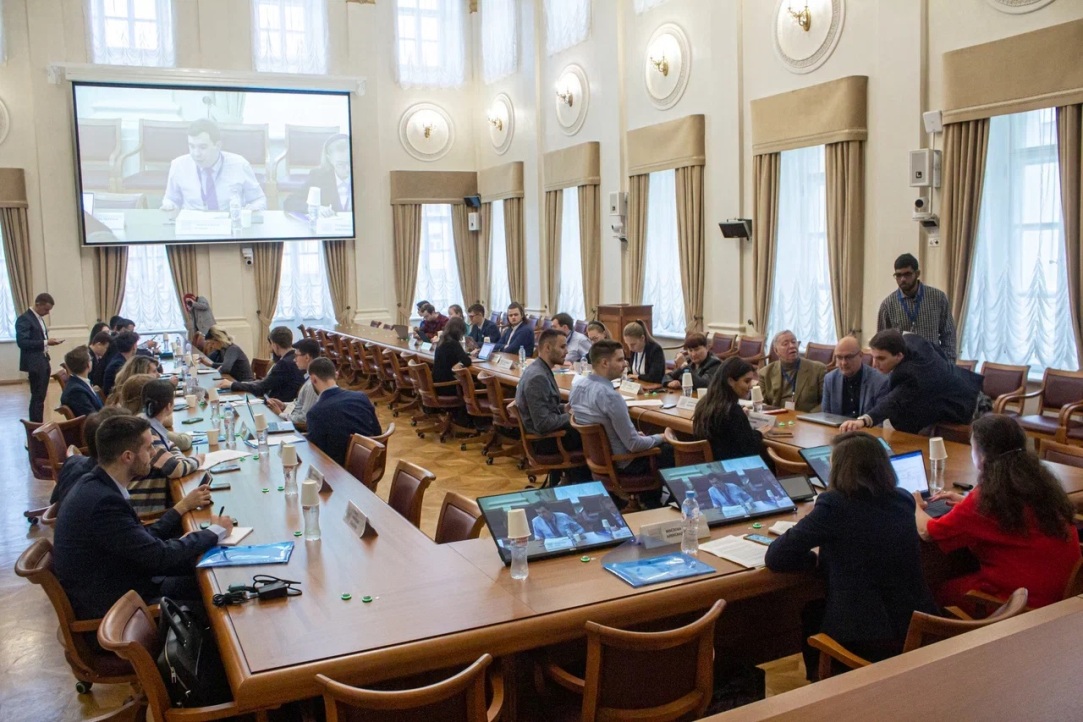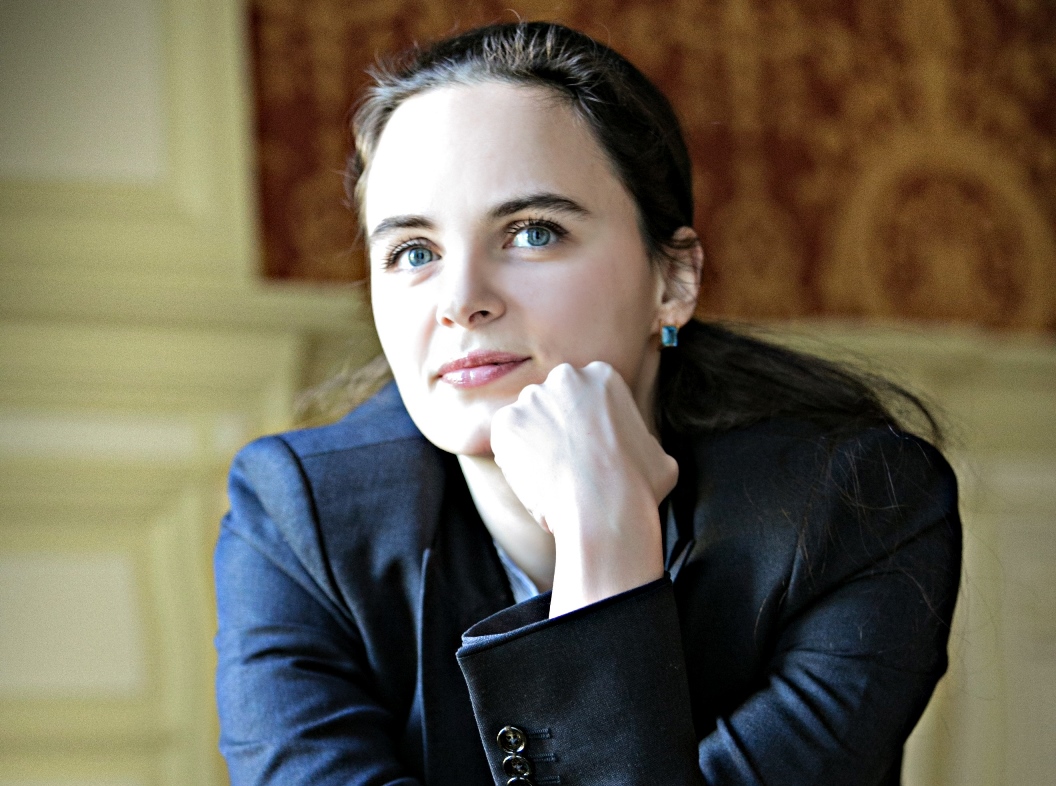Russia and the Mediterranean: Challenges and Prospects in the Energy Sector

The interrelation between the tasks of maintaining peace, preserving sovereignty, and ensuring gas supplies, the role of external players, Russia’s strategy in relation to the energy industries in Mediterranean countries in the changed economic and political context—these and other topics were discussed by the participants of the international scientific conference ‘Russia and the Greater Mediterranean 2023. Human in the New Energy Agenda.’ Researchers from Azerbaijan, Algeria, Greece, India, Serbia, Slovenia, and Turkey took part in the conference.
In her opening remarks, Ekaterina Entina, Director of HSE University’s Mediterranean Studies Centre, noted that this was the second such conference on Mediterranean issues. While the first one was devoted to cultural issues, this time the participants’ attention was focused on the role of energy in the region. Olga Butorina, Corresponding Member of the Russian Academy of Sciences and Deputy Director for Scientific Work at the Institute of Energy of the Russian Academy of Sciences, recalled that this year was an anniversary: half a century ago, in 1973, the global energy crisis began, ‘when people had learned that oil was one of the integral parts of life.’ ‘It’s worth considering the thought that the world is interconnected and energy interconnects the world,’ she said.

The conference ‘Russia and the Greater Mediterranean 2023’ has been organised by the Greater Mediterranean Analytical Centre in partnership with the Institute of Europe of the Russian Academy of Sciences (IE RAS) and HSE University’s Mediterranean Studies Centre with the help of the Alexander Gorchakov Public Diplomacy Fund. The conference was attended in person by scientists from Russian universities and expert centres, as well as researchers from Azerbaijan, Algeria, Greece, India, Serbia, Slovenia, and Turkey.
The first working day of the conference was devoted to discussing the activities of external actors in the Mediterranean and the energy challenges that the region is facing. Speaking at the plenary session, which was held at IE RAS, Strategic Consultant and Professor at the University of Algiers 3 Mohamed Said Mekki emphasised that Russia, unlike Western countries, had built relationships with Algeria and other African countries on a mutually beneficial basis since Soviet times. He believes that the conflict between Russia and the West has given new impetus to bilateral Russian-Chinese cooperation, which has a potential for significant expansion in cooperation with African countries, such as Algeria.
In turn, Konstantin Simonov, Head of the Department of Political Science at the Financial University under the Government of the Russian Federation and General Director of the National Energy Security Fund, highlighted that the energy sector today faces a real economic confrontation using non-market methods and there is no place for fair competition in virtually any area. He believes that the situation needs to be returned to normal, which means fair competition, including in the energy sector.
Mediterranean countries have very limited prospects for expanding production to meet the demand of the European market, believes Marcel Salikhov, President of the Institute for Energy and Finance Foundation and Director of the Centre for Economic Expert Analysis at HSE University. In the short to medium term, it is possible to reduce demand and secure liquefied natural gas (LNG) supplies from the US but so far, the EU does not have a mechanism for a long-term solution to the problem.
The participants spent the second day discussing how to maintain peace, preserve sovereignty, and ensure gas supplies. Issues related to the energy agenda in the political processes of Mediterranean countries were discussed at a section held at HSE University. Experts analysed the current state of the nuclear industry in the region, paying special attention to France, Turkey, Italy, and Cyprus. Marina Shpakovskaya, Professor at RUDN University, presented a collective report which stressed that the geopolitical interests of different countries collide in the Eastern Mediterranean, and that while Russia does not currently have a clear strategy for working in this region, it regularly makes adjustments to its policy there.
Anna Strimovskaya, Senior Lecturer at the Department of Logistics and Supply Chain Management at HSE University in St Petersburg, and Vladimir Krotov, master’s student at the Institute of Politics and International Relations at Shanghai Normal University, spoke about the challenges and prospects of the industry for exporting liquid hydrocarbons from the Mediterranean to European countries. They emphasised that the deindustrialisation of energy-intensive industries had led to a reduction in energy imports.
Summing up the discussions, Ekaterina Entina told the HSE News Service that the conference was not limited to energy itself. ‘We tried to ensure that all the reports presented showed the real state of things, the prospects for energy transition, and changes in the energy mix from the viewpoint of societies’ demands, real economic potential, and the creation of new growth points for national economies,’ she says. ‘It was interesting because representatives from Russia and other countries gathered at one table. For example, we had traditionally believed that India was unlikely to be closely involved in Mediterranean issues. It turned out we were wrong.’
In her opinion, Russian researchers show a high level of expertise and understanding of the processes taking place in the region. ‘The new international quality of domestic science, I believe, is preparing many pleasant surprises for us,’ summed up Ekaterina Entina.
See also:
Expert from Total Spoke on the Philosophy of Oil and Business
At the International Institute of Administration and Business, Christian Gueritte of the Total Professors Association gave a masterclass on Oil and Gas and Global Energy Issues.Total has been operating in Russia since 1991 and is one of the key partners of Russian oil and gas companies in the exploration and production of hydrocarbons.
HSE and GDF Suez Partnership: Results of the First Academic Year
HSE’s International Institute of Administration and Business (IIAB) is selecting students for the Master in European Business (MEB) programme. The programme is being carried out with the cooperation of several international companies. The head of the Russian division of French gas company Gaz de France (GDF) Suez, Albert Grigoryan, describes the format of the project.
‘Efficient Harvesting of Solar Energy Will Be as Dramatic as the Discovery of Extra-Terrestrial Life’
On April 3, 2013, Panos M. Pardalos, Academic Supervisor of the HSE Laboratory of Algorithms and Technologies for Networks Analysis in Nizhny Novgorod, Professor at the University of Florida, USA, gave an honorary lecture on ‘Optimization and Modeling in Energy Networks’ as part of the XIV HSE April International Academic Conference on Economic and Social Development.


